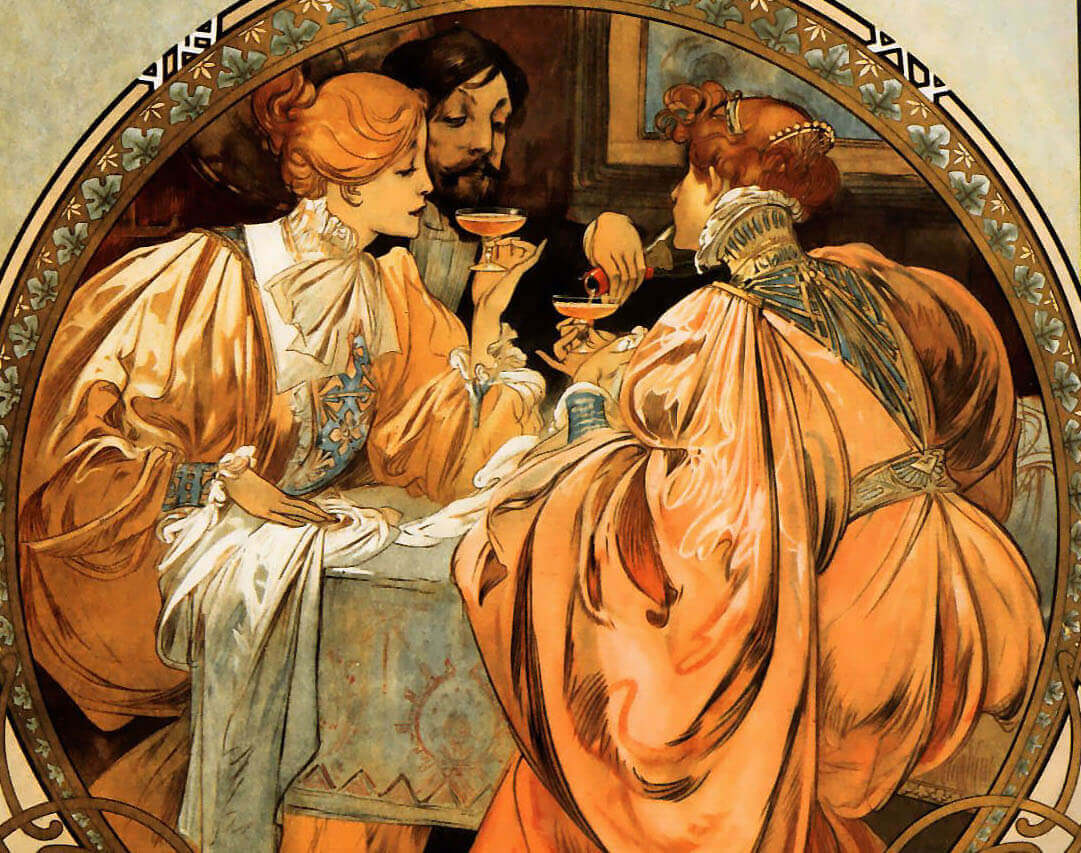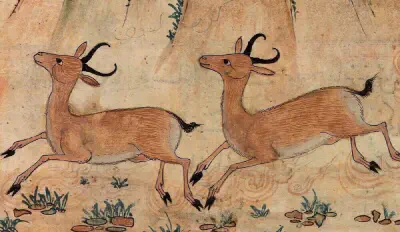Life
Arete of Cyrene was born into a philosophically-inclined family. Her father, Aristippus of Cyrene (c. 430 – 356 BCE), founded a distinctive philosophical school, known as the Cyrenaics, named after his home town, near Shahhat in present-day Libya.
We know slightly more about Aristippus than we do about his daughter Arete. He travelled to Athens when he was still a young man, and he became a part of the circle surrounding Socrates, although they had very different philosophical approaches. After the death of Socrates, Aristippus left Athens to travel: to Corinth, Aegina, Megara and Lydia, in present-day Turkey. He eventually returned to Cyrene.
It is not clear at which point in this itinerant wandering Arete was born. But we do know that Aristippus taught her philosophy. According to Diogenes Laërtius:
Aristippus “shared his training” (sunaskōn); he taught Arete “to be disdainful of excess” (huperoptikēn tou pleionos einai). [1]
After her father’s death in Cyrene, Arete took over as head of his philosophical school. Later, she passed on the school’s teachings to her son, also called Aristippus.
Skipped generations and invisible women
In many written histories of the Cyrenaic school, Aristippus senior is presented as the founder of the tradition, and Aristippus junior as the systematiser of Cyrenaic doctrines. In between, Arete seems to mysteriously disappear into the background, as if the philosophical gene somehow skips a generation. But when you look closer, it becomes apparent that she had a much larger role in the shaping and transmission of Cyrenaic thought than some later commentators have credited her with.
The extant records suggest that Aristippus Senior’s philosophy was somewhat unsystematic and freewheeling. It is only with Aristippus Junior that things become more firmed-up. But there is reason to think that Arete may have had a significant influence on systematising Cyrenaic doctrine. The fact that she is referred to in the texts as Aristippus’s successor suggests she was important to the tradition philosophically. And throughout antiquity, Aristippus junior was frequently referred to as being metrodidactus, or “mother-taught”, in acknowledgement of her significance. If the Cyrenaic school was something of a family business, at the heart of this business, and this lineage, was Arete.
Philosophy
Although largely forgotten in the later philosophical tradition, the Cyrenaics were an important philosophical school in the Ancient Greek world. They emphasised hedonism and the importance of attending to the needs of the body. But this emphasis on pleasure was not arbitrary. Instead, it was based on a deeper claim about what we can truly know.
Indeterminacy and affection
For the Cyrenaics, the search to find out how things are in themselves — a search that goes back to Thales — is doomed to failure. Things in themselves are indeterminate, ungraspable.
But why should they be so difficult to grasp? According to some readings of Cyrenaic philosophy, things are not ungraspable because of our deficiencies. They are ungraspable because things in themselves are not really things at all, at least in the sense that we apprehend them as things, but are something altogether more undifferentiated, indeterminate and entangled (here there might be a comparison with Anaxagoras and his gunk). We experience the universe as being made up of determinate objects. But when you dig down, these objects don’t have any fixed, determinate essence. For a contemporary analogy, think how the closer you look at things, the more the everyday objects of our experience dissolve into a fizz of subatomic particles.
The Cyrenaics claim that we can’t know how things are in any ultimate sense. So why bother trying? Instead of seeking out how things are, we should focus instead on how things affect us. The job of philosophy is not to dig down and find the true nature of things. Instead, it is to explore how to live well in the light of the fact that although things may be indeterminate, they nevertheless affect us. The big philosophical task is to explore the nature of the affections, and to thereby manage what it means to be a living, fleshy, feelingful creature.
Politics and pleasure
This leads the Cyrenaics to a scepticism about the value of political engagement. We might think that political engagement is a good and necessary thing. But more often than not, our political entanglements cause us harm and distress. Seen from the point of view of big, grand-seeming things like “truth”, political engagement may seem necessary. But when we ask “how does political engagement affect us?”, it seems much less desirable.
In his Memorabilia, Xenophon tells a story of an encounter between the young Aristippus and Socrates. Aristippus says to Socrates:
in no way at all do I put myself in the order of those who wish to rule. In fact, in my opinion, it is quite senseless that it not be enough for a human being to furnish himself with what he needs, although this is a lot of work, but instead to take on the additional task of procuring also for the rest of the citizens what they need. And, while doing without many of the things he wishes for himself, after having presided over the city he undergoes a penalty unless he accomplishes everything the city wishes. How is this not great senselessness? [2]
Seeking political office is a risky business. It goes beyond meeting the needs of the body and puts us in the way of danger. Here, the Cyrenaics seem close to the philosophy of Yang Zhu over in China, who also argued that seeking the status of political office is both exhausting and risky. We are much better off living out our lives by cultivating bodily pleasure and avoiding, as far as is possible, bodily pain.
The smooth motion of the flesh
But what are pleasure and pain? For the Cyrenaics, pleasure is “the smooth motion of the flesh,” whilst pain is “a rough motion” in the flesh. Here is what Diogenes Laërtius says about the Cyrenaics:
They posited two experiences, bodily pain and pleasure, one a smooth motion, pleasure, and pain a rough motion. One pleasure does not differ from another, nor is anything particularly pleasant. Pleasure is good-seeming to all animals, and pain is repulsive. [3]
Both pleasure and pain are about motion. The Cyrenaics see our bodies as living, dynamic things: and motion is central to what it means to be embodied. This is not just about how we move through the world, but about understanding our body as a dynamic, living thing. Our breath comes and goes. Our blood pumps through our veins. This living motion of the body can be either uncomfortable, disharmonious, and rough; or it can be comfortable, harmonious, and smooth. The art of living is the art of cultivating this smooth motion of the flesh, giving rise to bodily ease, pleasure, comfort, and well-being.
There is something about the Cyrenaic search for pleasure that roots us firmly in our animal nature, as Diogenes Laërtius points out. And this capacity for pleasure is shared by other species. There is no more vivid image of the smooth motion of the flesh than that of a cat stretching and purring in the sun, immersed in the pleasure of being alive.
Against excess and austerity
You might think that this focus on pleasure is a recipe for excess. But it isn’t. Remember that Aristippus Senior taught Arete to be disdainful of excess. So how does this square with the idea of pleasure as central to human life?
The point here seems to be that the pursuit of distant pleasure is fruitless. Instead, we should seek pleasures that are close-by or proximate, or seek out the pleasures in the situation in which we currently find ourselves.
Aristippus enjoyed the pleasure of what was present, and didn’t hunt painfully after the enjoyment of what was not present.” [4]
According to the Cyrenaics, the good life is a life free of both the search for excess and the search for austerity. Instead, it is a life where we attend to bodily pleasure here and now, adapting ourselves to our present circumstances, seeking to support the smooth motion of the flesh, recognising that this is the pinnacle of well-being.
You may disagree with this view of the good life. But I have consulted Margaret, the Looking for Wisdom office cat, and she thinks it all makes perfect sense…
Notes
- Kurt Lampe, The Birth of Hedonism: The Cyrenaic Philosophers and Pleasure as a Way of Life (Princeton University Press 2015), p 39
- Xenophon, translated Amy L. Bonnette, Memorabilia, II. 1 (Cornell University Press 1994), p. 35.
- The Birth of Hedonism, p. 29.
- The Birth of Hedonism, p. 40
Further Reading
Books
A good introduction is The Cyrenaics by Ugo Zilioli (Acumen 2012).
Online Resources
See the extensive list of Cyrenaic resources here.
Image: Champagne advertisement. By Alphonse Mucha (1860–1939). Public domain via Wikimedia Commons.



